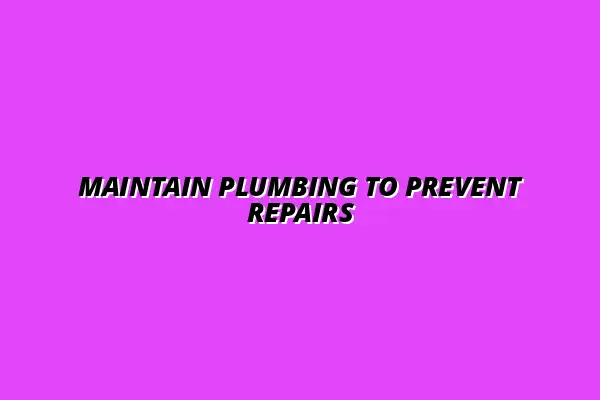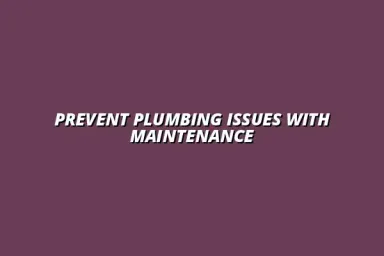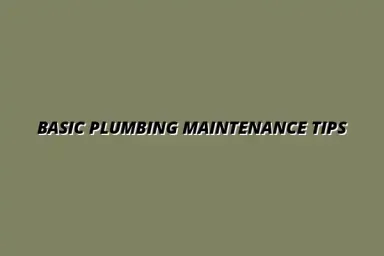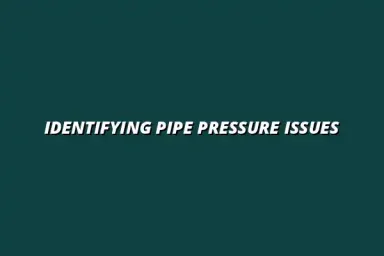Understanding Plumbing Systems: A Comprehensive Overview
As a homeowner or a business owner, understanding your plumbing system is crucial. A healthy plumbing system can save you from multiple headaches and expensive repairs down the line. Regular maintenance can help detect potential issues before they escalate, ensuring everything runs smoothly!
When I think about plumbing systems, I often see them as the hidden veins of a home or business. They transport water to where we need it and safely remove waste. It’s vital to be aware of how these systems work, so you can keep them in tip-top shape!
The Importance of Regular Plumbing Maintenance
Neglecting plumbing maintenance can lead to serious, costly repairs later on. Regular checks can help identify small issues before they become big problems. For instance, a small leak can cause extensive water damage if left unchecked!
Investing time and resources into maintaining your plumbing can save you money in the long run. Here are a few key reasons why regular maintenance is essential:
- Prevents major plumbing disasters.
- Extends the lifespan of your plumbing system.
- Ensures water quality and pressure are at optimal levels.
Common Components of Plumbing Systems
Plumbing systems are made up of several key components that work together seamlessly. Understanding these elements can help you appreciate the complexity of your system. Here’s a quick rundown of what you’ll typically find:
- Pipes: The arteries of your plumbing, transporting water to various fixtures.
- Fixtures: These include faucets, sinks, toilets, and showers where water is used.
- Drains: Responsible for removing wastewater from your home or business.
Each of these components plays a vital role in your plumbing system’s overall health. By learning about them, you’ll be better equipped to spot issues when they arise!
Signs of Potential Plumbing Problems
Being aware of early warning signs can help you catch plumbing issues before they turn into emergencies. Some of the most common signs to watch for include:
- Unusual noises from your pipes.
- Slow drains or frequent clogs.
- Water stains on walls or ceilings.
If you notice any of these signs, it’s time to take action! Ignoring them could lead to more severe problems, requiring professional assistance. At Plumb Pro Care, we always recommend being proactive when it comes to plumbing health!
Addressing Common Plumbing Queries and Misconceptions
Do DIY repairs save money in the long run?
When it comes to plumbing, many homeowners wonder if DIY repairs can truly save them money. While tackling simple issues like a leaky faucet might seem cost-effective, it's essential to weigh the pros and cons. For instance, handling minor repairs can save you from paying a plumber, but if you misdiagnose the problem, it could lead to expensive damage down the road!
In my experience, I've seen many folks attempt repairs only to find themselves in deeper trouble. They often end up calling a professional, which adds to their expenses. Here are some things to consider when deciding between DIY and hiring a pro:
- Cost of Tools: Sometimes, the tools needed for a DIY job can be pricey.
- Time and Effort: DIY projects can take longer than expected, especially for beginners.
- Risk of Mistakes: Poor repairs can cause more damage, leading to higher repair costs.
What are the most common plumbing myths?
There are numerous myths about plumbing that can mislead homeowners. It’s crucial to debunk these misconceptions to maintain a healthy plumbing system. Here’s a quick list of some common plumbing myths I often encounter:
- Flushing non-biodegradable items is okay: Many believe they can flush items like wipes and cotton balls. This can cause serious clogs!
- Hot water solves clogs: Some think that pouring hot water down the drain will clear it. It might work temporarily, but it won't address the real issue.
- Relying on chemical drain cleaners: While they may provide a quick fix, they can damage pipes in the long run.
Overall, understanding these myths can help you make smarter decisions regarding your plumbing system. You want your home, especially in Birmingham, where plumbing issues can be common, to stay safe and functional!
Summarizing Key Takeaways for Plumbing Maintenance
Recap of Effective Maintenance Strategies
Let’s recap some of the primary strategies for maintaining your plumbing systems. Following a regular maintenance routine can significantly reduce the risk of costly repairs. Here are the key takeaways:
- Regular Inspections: Check for leaks and inspect fixtures often.
- Drain Maintenance: Use screens and traps to prevent clogs.
- Seasonal Preparations: Insulate pipes in winter and check for heat-related issues in summer.
Encouraging Proactive Plumbing Care
In conclusion, prioritizing regular plumbing maintenance is crucial for preventing costly repairs down the line. I encourage you to take a proactive approach. Whether you tackle some of the smaller tasks yourself or call in the professionals at Plumb Pro Care for a thorough inspection, every little bit helps!
By keeping up with maintenance, you not only safeguard your home but also have peace of mind knowing that your plumbing system is in good shape. Don't wait until a minor issue turns into a major headache—start today!

 Kiran Almasi
Kiran Almasi

